
Krabi Province: A Tropical Paradise in Thailand
Krabi Province, located on the southwestern coast of Thailand, is a tropical paradise that attracts travelers from around the world. Known for its stunning limestone cliffs, crystal-clear waters, and lush greenery, Krabi offers an idyllic escape for those seeking adventure, relaxation, and natural beauty. One of the highlights of Krabi is its incredible beaches. Railay Beach, accessible only by boat, is famed for its white sand and dramatic cliffs. Ao Nang Beach, on the other hand, is a lively area with a variety of restaurants, bars, and shops. For a more secluded experience, visit the serene Phra Nang Beach, home to the famous Princess Cave. Beyond its beaches, Krabi is a haven for outdoor enthusiasts. The province boasts some of the best rock climbing in the world, particularly around the Railay Peninsula. The crystal waters are perfect for snorkeling and diving, with vibrant coral reefs and diverse marine life. Kayaking through the mangroves and exploring hidden lagoons are also popular activities. Krabi is rich in cultural and natural attractions. The Tiger Cave Temple, or Wat Tham Sua, offers a challenging climb with rewarding panoramic views. The Emerald Pool and Hot Springs in Khlong Thom provide a unique opportunity to relax in natural mineral waters. Additionally, the nearby Phi Phi Islands, accessible by boat, are a must-visit for their stunning scenery. With its warm climate year-round, friendly locals, and a laid-back vibe, Krabi Province is a destination that caters to all types of travelers. Whether you're looking for adventure, relaxation, or a mix of both, Krabi promises an unforgettable experience.
Local tips in Krabi Province
- Visit during the dry season from November to April for the best weather.
- Carry cash, as some smaller establishments may not accept credit cards.
- Wear appropriate footwear for activities like rock climbing and hiking.
- Take a longtail boat tour to explore nearby islands and secluded beaches.
- Respect local customs and dress modestly when visiting temples.
Krabi Province: A Tropical Paradise in Thailand
Krabi Province, located on the southwestern coast of Thailand, is a tropical paradise that attracts travelers from around the world. Known for its stunning limestone cliffs, crystal-clear waters, and lush greenery, Krabi offers an idyllic escape for those seeking adventure, relaxation, and natural beauty. One of the highlights of Krabi is its incredible beaches. Railay Beach, accessible only by boat, is famed for its white sand and dramatic cliffs. Ao Nang Beach, on the other hand, is a lively area with a variety of restaurants, bars, and shops. For a more secluded experience, visit the serene Phra Nang Beach, home to the famous Princess Cave. Beyond its beaches, Krabi is a haven for outdoor enthusiasts. The province boasts some of the best rock climbing in the world, particularly around the Railay Peninsula. The crystal waters are perfect for snorkeling and diving, with vibrant coral reefs and diverse marine life. Kayaking through the mangroves and exploring hidden lagoons are also popular activities. Krabi is rich in cultural and natural attractions. The Tiger Cave Temple, or Wat Tham Sua, offers a challenging climb with rewarding panoramic views. The Emerald Pool and Hot Springs in Khlong Thom provide a unique opportunity to relax in natural mineral waters. Additionally, the nearby Phi Phi Islands, accessible by boat, are a must-visit for their stunning scenery. With its warm climate year-round, friendly locals, and a laid-back vibe, Krabi Province is a destination that caters to all types of travelers. Whether you're looking for adventure, relaxation, or a mix of both, Krabi promises an unforgettable experience.
When is the best time to go to Krabi Province?
Iconic landmarks you can’t miss
Wat Tham Suea
Experience tranquility and breathtaking views at Wat Tham Suea, the iconic Buddhist temple in Krabi, Thailand, offering a unique cultural adventure.
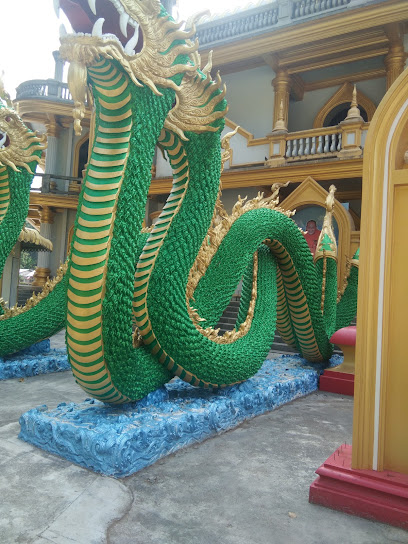
Emerald Pool
Experience the serene beauty of Emerald Pool in Krabi, Thailand, a natural hot spring surrounded by lush rainforest perfect for relaxation and swimming.

Pi Leh Bay
Discover the stunning beauty and vibrant marine life at Pi Leh Bay, a tropical paradise in Ao Nang, Krabi, perfect for relaxation and adventure.
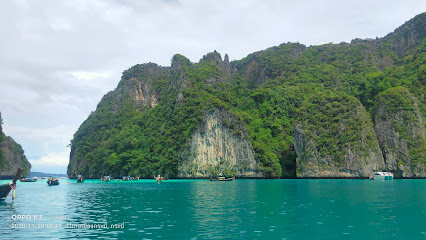
Krabi Town Night Market
Discover the flavors and culture of Thailand at Krabi Town Night Market—where every evening is a vibrant celebration of local life and cuisine.
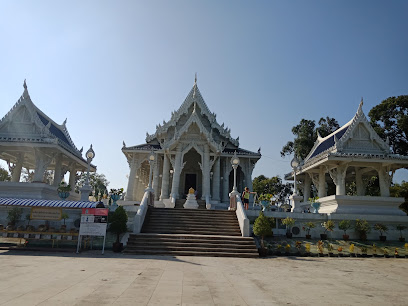
Railay West Beach
Discover the stunning beauty of Railay West Beach in Krabi, Thailand, where adventure meets relaxation amidst dramatic limestone cliffs and crystal-clear waters.
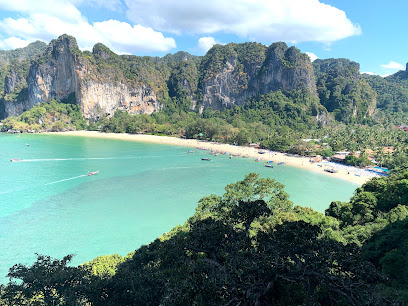
Princess Cave (Railay, Krabi)
Explore the mystical Princess Cave in Railay, Krabi - a stunning blend of natural beauty and cultural significance waiting to be discovered.
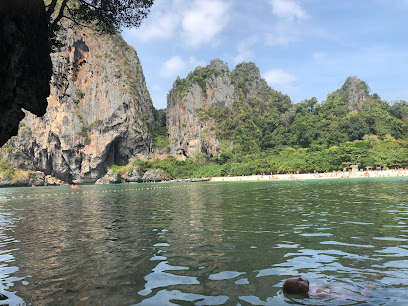
Bamboo Island
Discover the unspoiled beauty of Bamboo Island, Thailand, where pristine beaches and vibrant marine life create a perfect tropical getaway.
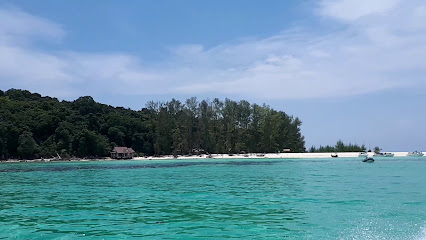
Phra Nang Beach
Experience the breathtaking beauty of Phra Nang Beach in Krabi, Thailand, where crystal-clear waters meet stunning limestone cliffs in a tropical paradise.
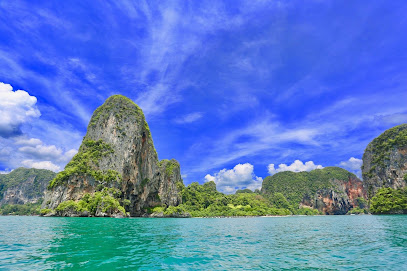
Hot Stream Krabi
Experience the tranquil beauty of Hot Stream Krabi, a hidden oasis of warm mineral waters amidst stunning tropical landscapes.
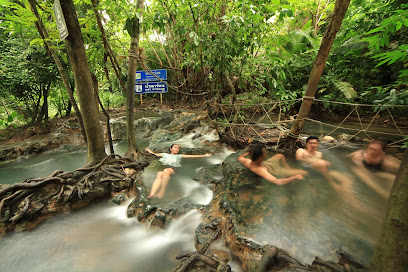
Than Bok Khorani National Park
Explore the breathtaking landscapes and vibrant wildlife of Than Bok Khorani National Park, a hidden gem in Krabi, Thailand.
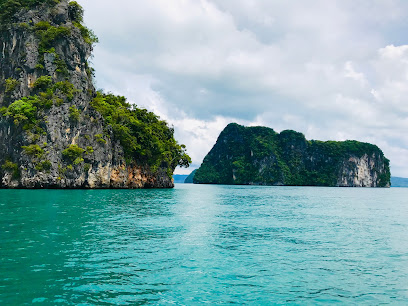
Monkey Trail, Ao Nang
Experience the natural beauty and playful wildlife along Ao Nang's enchanting Monkey Trail, perfect for hiking enthusiasts and nature lovers alike.
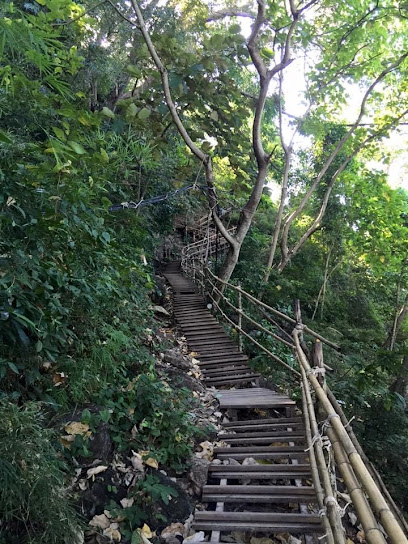
Shell Cemetery
Explore the fascinating fossilized shell graveyard at Shell Cemetery in Krabi, a unique blend of natural beauty and geological history.
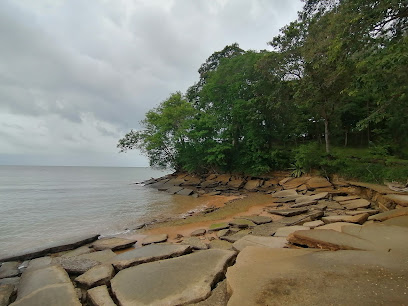
The Mud Crabs Sculpture
Discover the Mud Crabs Sculpture in Krabi, Thailand – a stunning tribute to local wildlife and a must-visit for all nature and art enthusiasts.
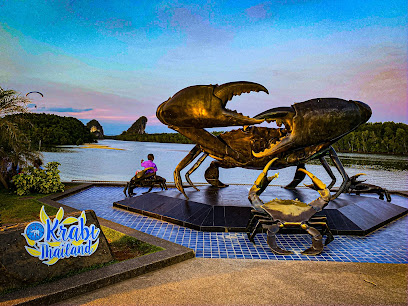
Thara Park
Experience the tranquil beauty of Thara Park in Krabi, Thailand, a stunning park perfect for relaxation and outdoor activities amidst nature's splendor.
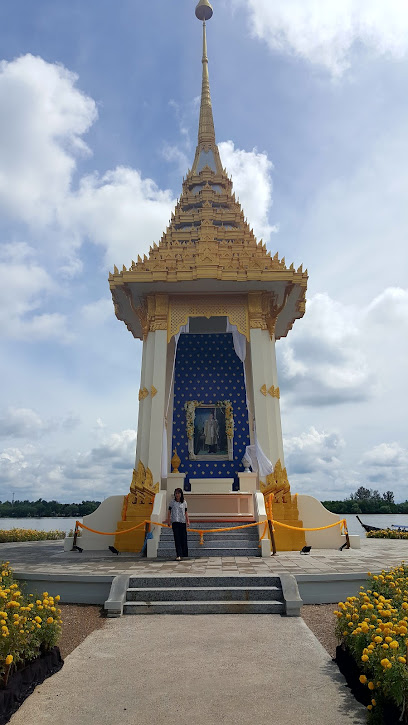
Koh Pakbia
Explore the pristine beauty of Koh Pakbia, a serene island in Krabi, Thailand, perfect for relaxation, adventure, and breathtaking views.
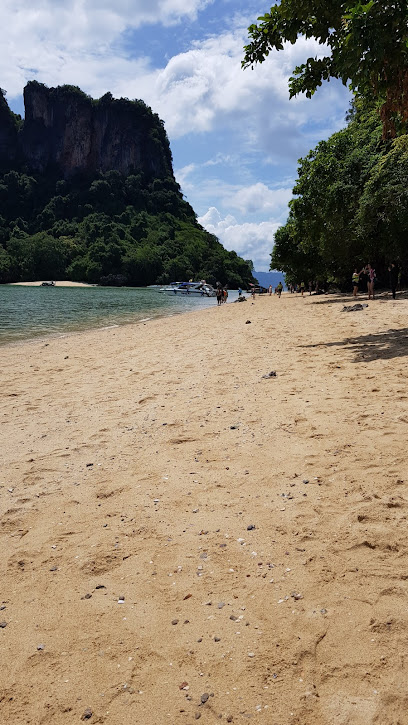
Unmissable attractions to see
Wat Tham Suea
Discover the spiritual tranquility of Wat Tham Suea, a breathtaking temple in Krabi surrounded by stunning nature and rich Buddhist heritage.
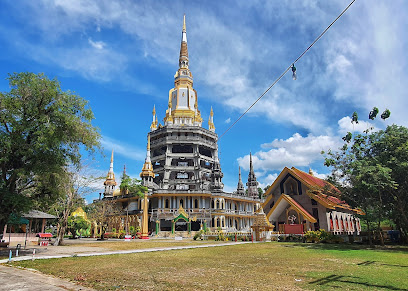
Princess Cave (Railay, Krabi)
Explore the enchanting Princess Cave in Railay, Krabi – a hidden gem of natural beauty and spiritual significance.
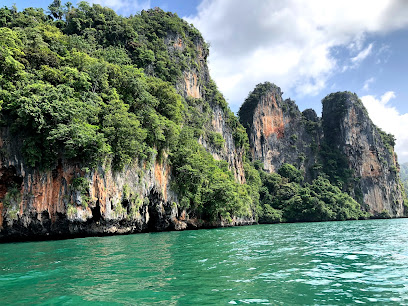
Hot Stream Krabi
Discover the therapeutic waters of Hot Stream Krabi, a natural attraction in Thailand perfect for relaxation and rejuvenation amid stunning landscapes.
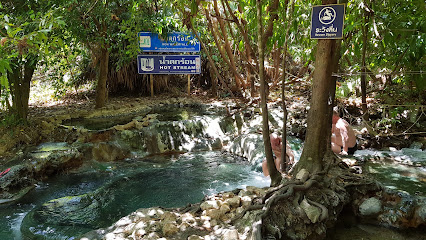
Chao Fah Park
Discover tranquility at Chao Fah Park, a natural gem in Krabi offering lush landscapes, cultural insights, and scenic riverside views.
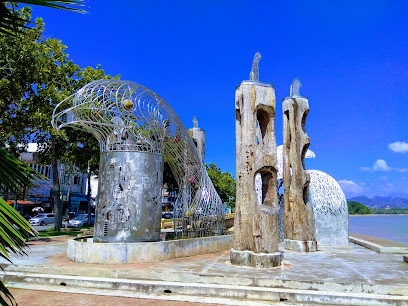
Shell Cemetery
Discover the enchanting Shell Cemetery in Krabi, a unique geological site showcasing ancient fossil formations amidst tranquil natural beauty.
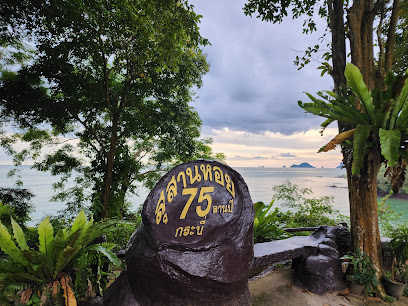
The Mud Crabs Sculpture
Explore The Mud Crabs Sculpture in Krabi, a unique tourist attraction blending art, culture, and stunning natural beauty for unforgettable memories.
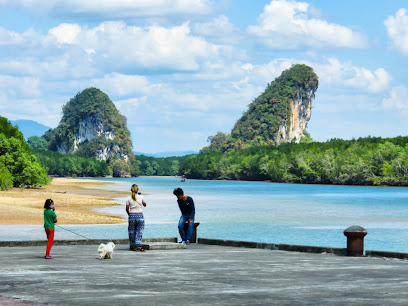
Thara Park
Experience the natural beauty and recreational charm of Thara Park in Krabi, Thailand, perfect for relaxation and family fun.
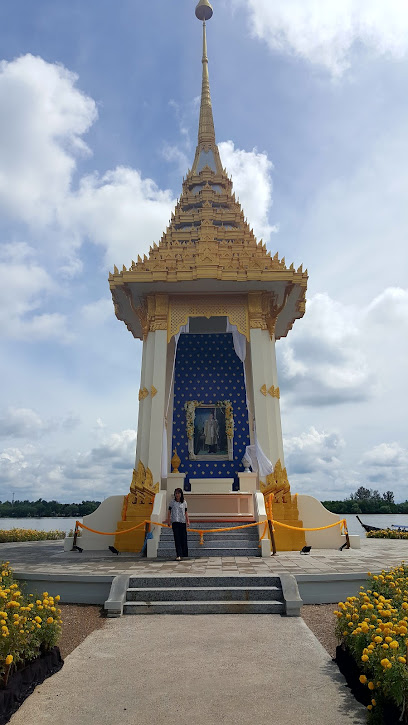
Blue Pool Krabi Thailand
Experience the serene beauty of the Blue Pool in Krabi, Thailand - a natural gem that offers vibrant waters and lush rainforest surroundings.
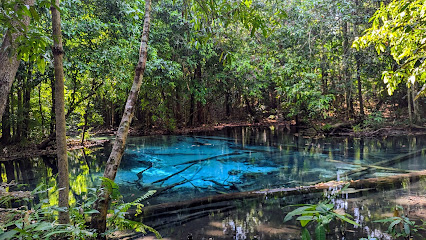
Krabi Elephant Shelter
Discover the enchanting world of elephants at Krabi Elephant Shelter, where ethical tourism meets unforgettable wildlife experiences in Thailand.
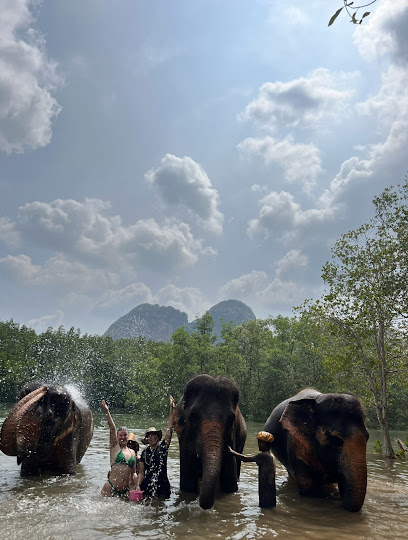
Khao Phanom Bencha National Park
Discover the breathtaking landscapes and rich biodiversity of Khao Phanom Bencha National Park, a must-visit destination in Krabi, Thailand.
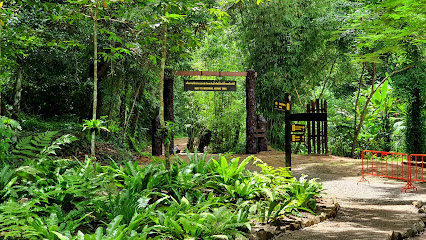
Ao Nang Elephant Sanctuary Krabi (Booking is needed)
Experience compassion and conservation at Ao Nang Elephant Sanctuary in Krabi, where you can connect with rescued elephants in a natural setting.
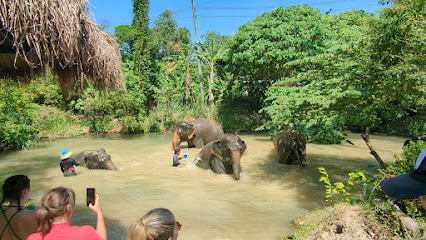
Andaman Cultural Study Center
Discover the rich history and vibrant culture of the Andaman region at the Andaman Cultural Study Center in Krabi, a must-visit for every tourist.
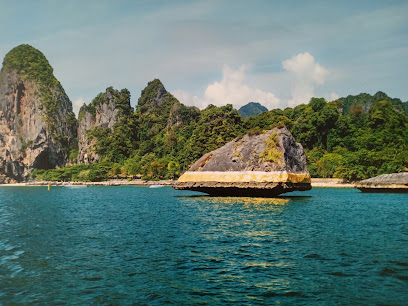
Lagoon
Experience the serene beauty of the Lagoon in Krabi, a hidden paradise for nature lovers and adventure seekers alike.
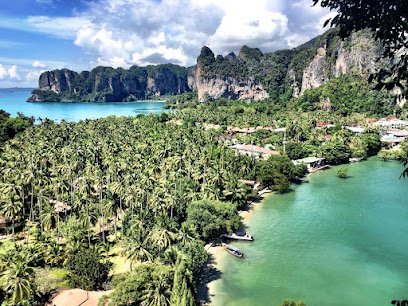
THAI'D UP ADVENTURES
Experience the thrill of adventure and the beauty of nature at THAI'D UP ADVENTURES in Krabi, Thailand.
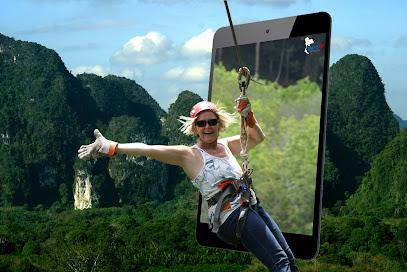
Krabi Snake Park and Kingcobra show
Experience the adrenaline and wonder of the Krabi Snake Park - home to the enthralling King Cobra show and a variety of exotic reptiles.
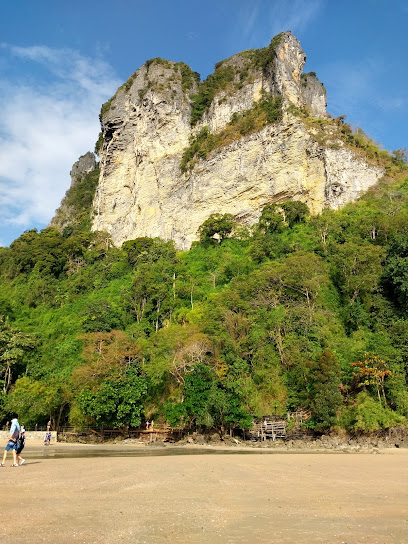
Essential places to dine
Kodam Kitchen
Experience authentic Thai flavors at Kodam Kitchen in Ao Nang - a culinary delight for every traveler seeking delicious and affordable dining.
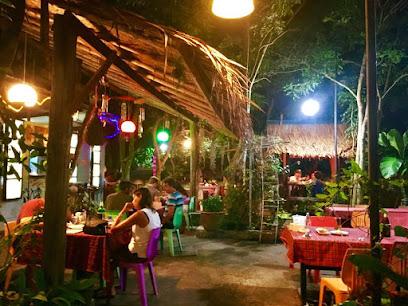
Family Thaifood & Seafood
Experience authentic Thai flavors at Family Thaifood & Seafood in Ao Nang – where fresh ingredients meet friendly service.
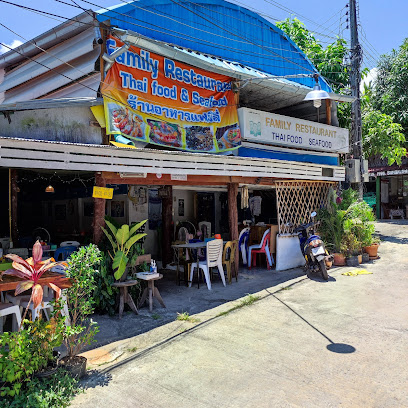
Ali Baba Restaurant, Thai Food, Indian food, Vegetarian & Vegan Food, Halal Food
Experience the exquisite fusion of Thai and Indian cuisine at Ali Baba Restaurant in Ao Nang - where flavor meets culture!
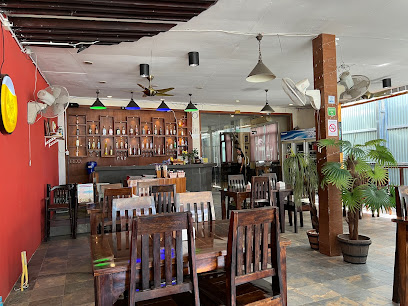
Kiran Kitchen Restaurant, Ao nang Beach, Center Point, Krabi - Thailand
Discover exquisite flavors at Kiran Kitchen Restaurant in Ao Nang Beach - where local Thai cuisine meets international delights.
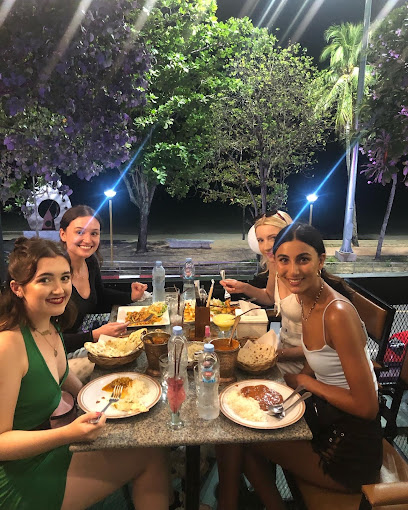
THAI ME UP PANG Restaurant and Bar
Discover an exquisite blend of Thai and international cuisine at THAI ME UP PANG Restaurant and Bar in Ao Nang.
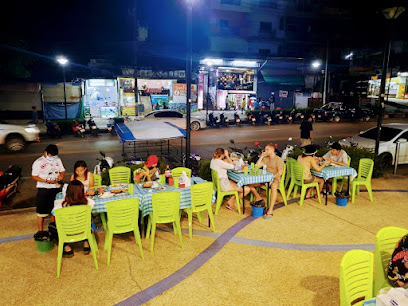
Jungle Kitchen
Experience authentic Thai cuisine at Jungle Kitchen in Ao Nang, Krabi – a budget-friendly haven for food lovers.
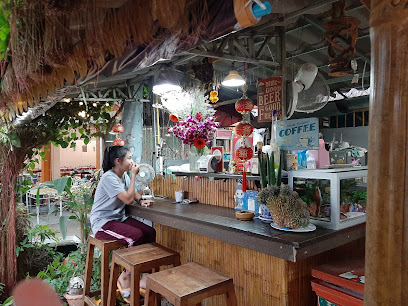
Carnivore Steak & Grill
Discover exquisite flavors at Carnivore Steak & Grill in Ao Nang – where every bite is a celebration of fine dining.
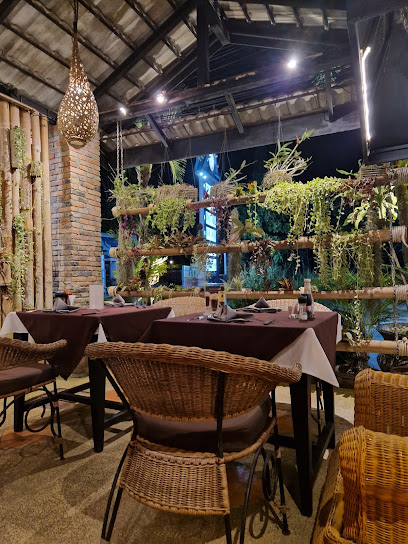
Anchalee Restaurant
Discover the vibrant tastes of Thailand at Anchalee Restaurant in Krabi – where every dish tells a story.
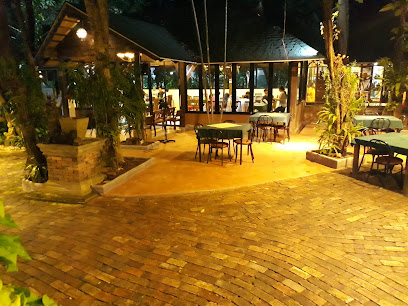
The Hilltop Ao Nang
Experience exquisite Thai cuisine and stunning sunset views at The Hilltop Ao Nang—a must-visit dining destination in Krabi.
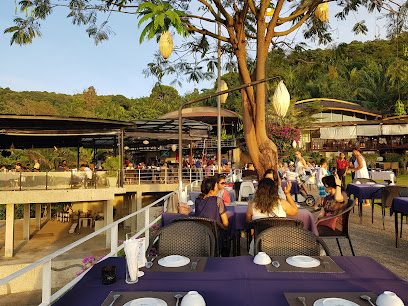
ZAIKA KRABI THAI & INDIAN SEAFOOD, RESTAURANT
Experience the best of Thai and Indian seafood cuisine at Zaika Krabi - a must-visit dining destination in Ao Nang.
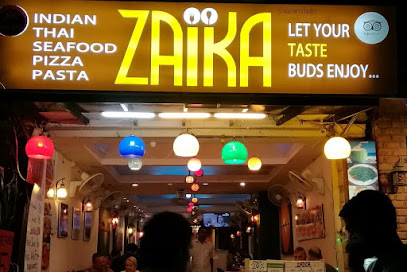
Lae Lay Grill
Experience authentic Thai and seafood cuisine with breathtaking views at Lae Lay Grill in Ao Nang, Krabi.
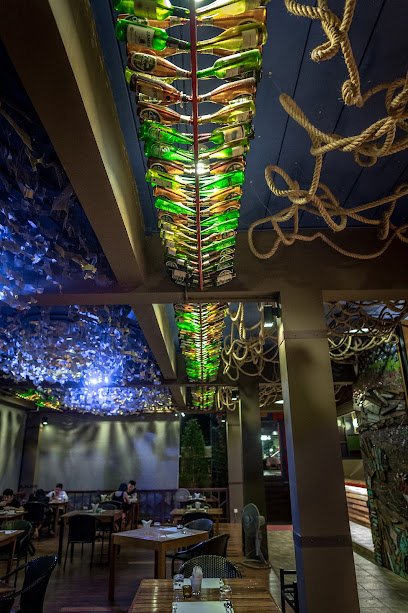
Gecko Cabane Restaurant
Discover Gecko Cabane Restaurant: A fusion of Thai and French cuisine in Krabi's vibrant dining scene.
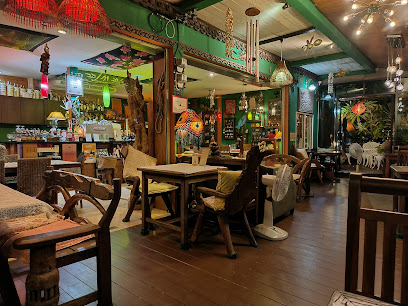
may&zin restaurant
Discover authentic halal Thai cuisine at May&Zin Restaurant in Ao Nang - where flavor meets affordability.
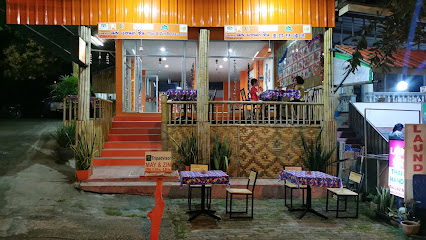
The River Restaurant & Bar
Experience exquisite Thai cuisine amidst stunning river views at The River Restaurant & Bar in Krabi.
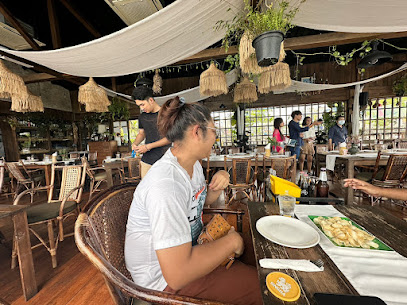
Viva Restaurant
Discover authentic Italian cuisine at Viva Restaurant in Krabi - where every bite takes you on a flavorful journey!
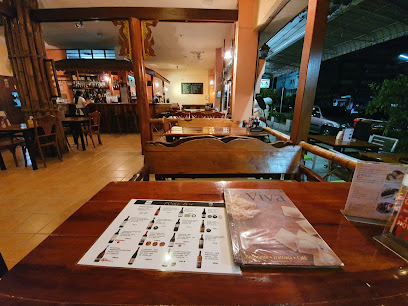
Markets, malls and hidden boutiques
Krabi Town Night Market
Experience the vibrant atmosphere of Krabi Town Night Market, where delicious street food and unique local crafts come together in a cultural feast.
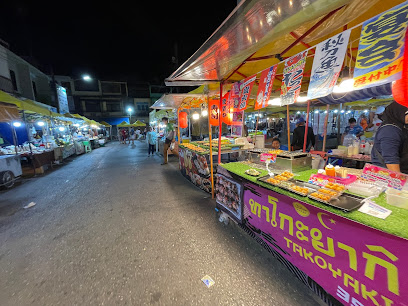
Ao Nang Landmark Night Market
Experience the vibrant culture and flavors of Thailand at Ao Nang Landmark Night Market, the ultimate destination for food and shopping in Krabi.
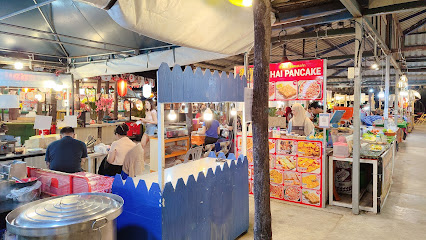
Big C Supercenter Krabi
Discover the vibrant shopping experience at Big C Supercenter Krabi, where local flavors meet international variety in a modern hypermarket setting.
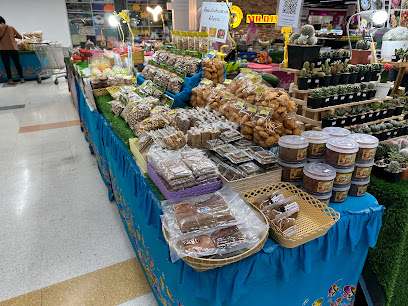
Maharaj Market
Explore the vibrant Maharaj Market in Krabi for an authentic taste of local culture and cuisine, offering fresh produce, delicious street food, and unique souvenirs.
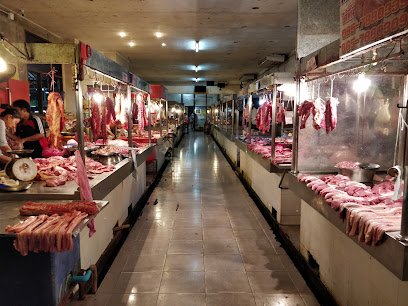
Night market place
Immerse yourself in the vibrant atmosphere of Ao Nang's Night Market, where local crafts and delicious street food await every evening.
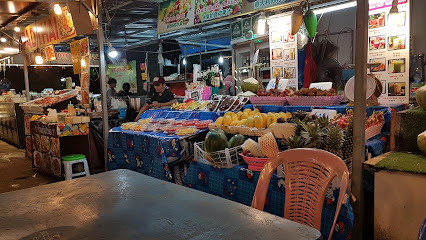
Vogue Shopping Center
Experience the vibrant shopping and dining scene at Vogue Shopping Center in Krabi, Thailand, where culture meets modern retail.
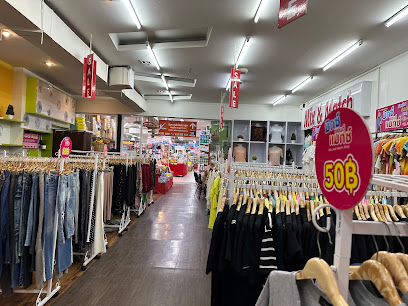
Outlet Village Krabi
Experience shopping bliss at Outlet Village Krabi, where luxury meets affordability amid a vibrant atmosphere and delicious dining options.
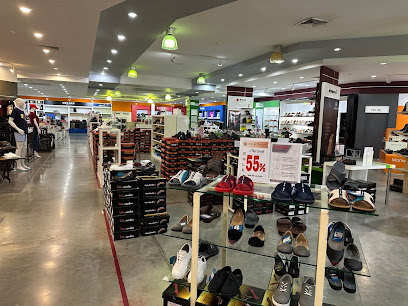
Krabi Night Market
Explore the Krabi Night Market for an unforgettable blend of local flavors, vibrant crafts, and the heart of Thai culture under the stars.
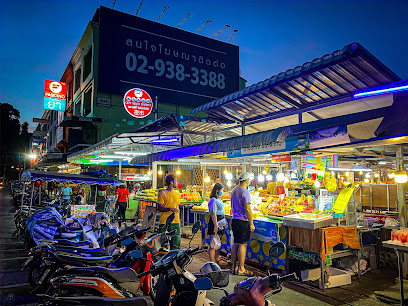
Jee-Or Souvenirs Shop
Explore the vibrant charm of Jee-Or Souvenirs Shop in Krabi, where unique crafts and delicious local treats await your discovery.
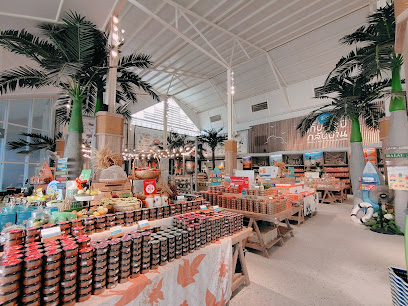
Krabi Souvenir Shop
Explore unique gifts and local delicacies at the Krabi Souvenir Shop, a treasure trove reflecting the vibrant culture of Thailand.
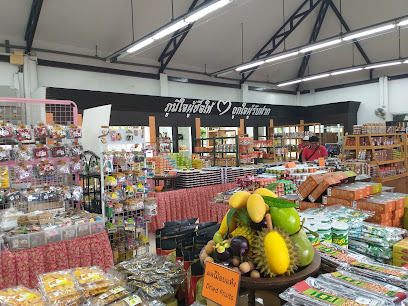
hong kong tailor
Experience bespoke tailoring in Ao Nang, Krabi, at Hong Kong Tailor, where quality craftsmanship meets personalized service.
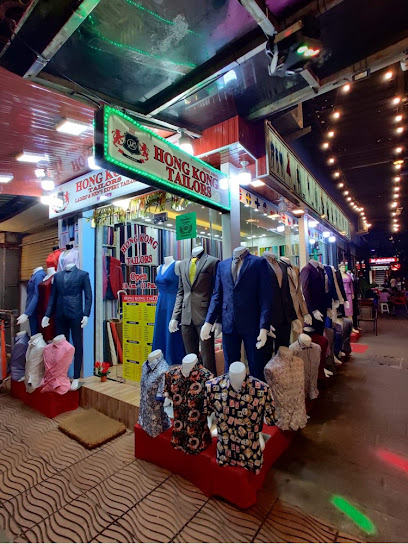
Ao-nang beach walk market
Discover the lively Ao-Nang Beach Walk Market, where local crafts, delicious street food, and vibrant culture come together in Krabi.
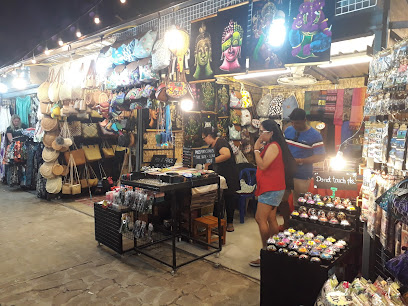
Kan-Eng
Discover a vibrant shopping experience at Kan-Eng in Krabi, where local culture meets modern retail and delicious Thai cuisine.
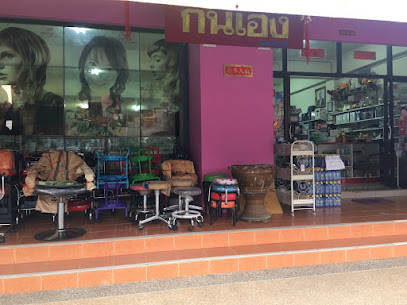
Chock Dee Handmade
Discover exquisite handmade jewelry at Chock Dee Handmade in Ao Nang, where craftsmanship meets the beauty of Thai culture.
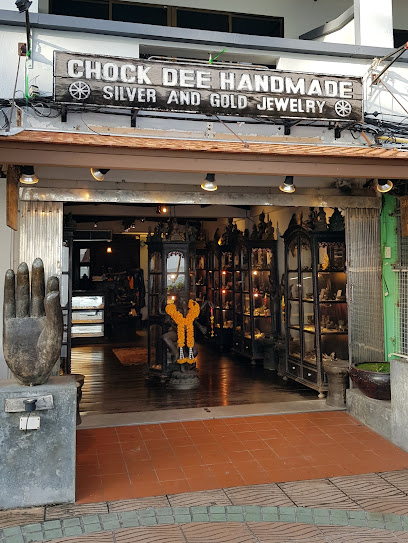
Ao Nang Whisky
Discover the finest selection of spirits at Ao Nang Whisky, where local and international liquors meet a welcoming atmosphere in beautiful Krabi.
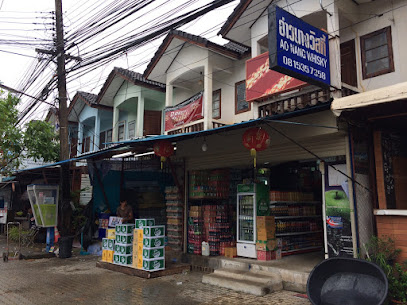
Essential bars & hidden hideouts
Boogie Bar
Boogie Bar in Ao Nang, Krabi, offers an unforgettable nightlife experience with live music, refreshing cocktails, and a vibrant social atmosphere.
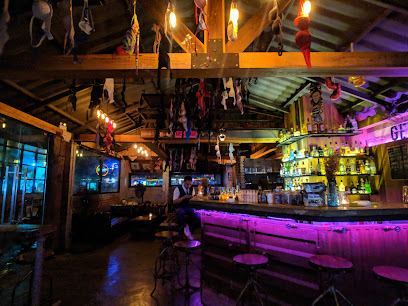
Reggae Bar
Experience the vibrant nightlife of Ao Nang at Reggae Bar, where live music and great drinks come together for an unforgettable evening.
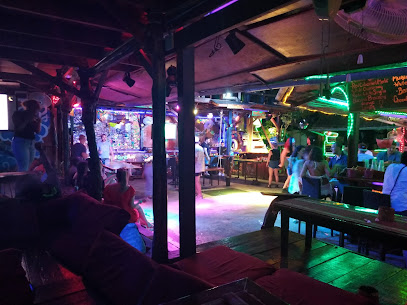
Carlito's bar
Experience the vibrant atmosphere and refreshing drinks at Carlito's Bar in Ao Nang, where unforgettable evenings await in a tropical paradise.
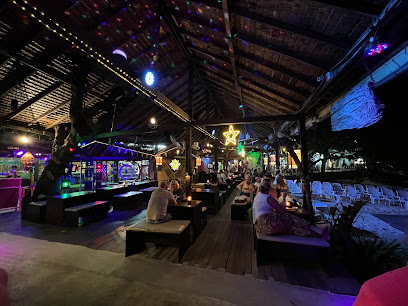
Full Moon Bar and Restaurant
Discover the enchanting atmosphere of Full Moon Bar and Restaurant in Ao Nang, where stunning views and delicious cuisine create an unforgettable experience.
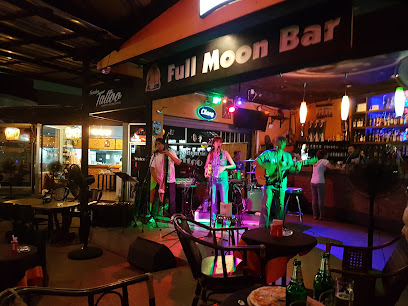
Reggae Town Bar and Restaurant
Experience the vibrant nightlife of Ao Nang at Reggae Town Bar, where reggae beats and tropical vibes create the perfect getaway.
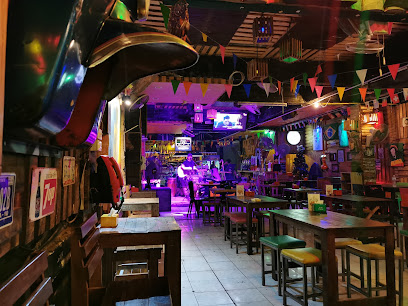
Booze Bar
Discover Booze Bar in Krabi: A vibrant waterfront bar with friendly staff, great drinks, and a lively atmosphere perfect for a night out.
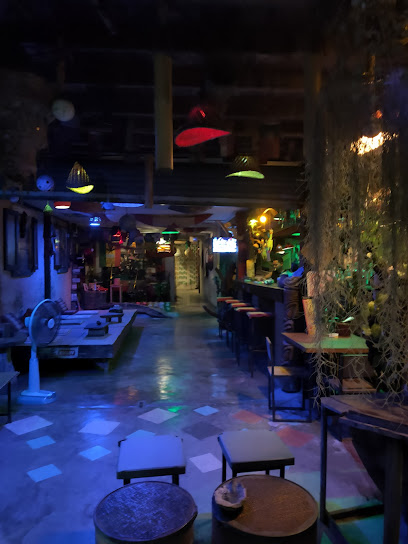
Tribe Beach Bar
Experience the vibrant nightlife and stunning beach views at Tribe Beach Bar, Ao Nang's premier cocktail and dance destination.
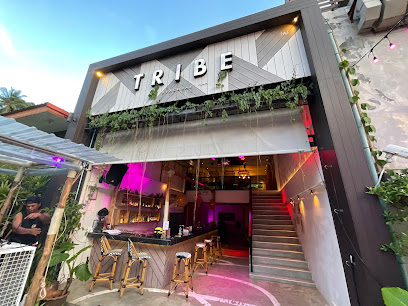
Amy's
Discover the lively atmosphere at Amy's Bar in Ao Nang, where refreshing drinks and friendly service create the perfect nightlife escape.
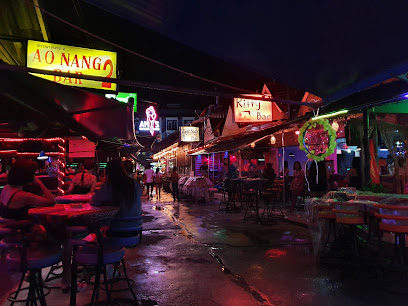
Mr Long Bar
Discover the vibrant nightlife at Mr Long Bar in Ao Nang, Krabi, where refreshing drinks and lively entertainment await.
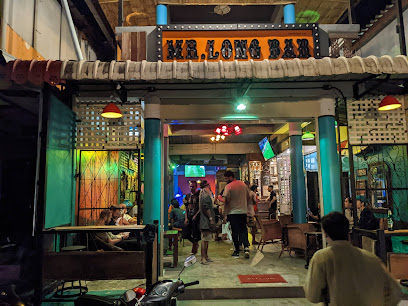
Kiss Bar Ao Nang
Discover the vibrant nightlife of Krabi at Kiss Bar Ao Nang, an affordable oasis with refreshing drinks and a lively atmosphere.
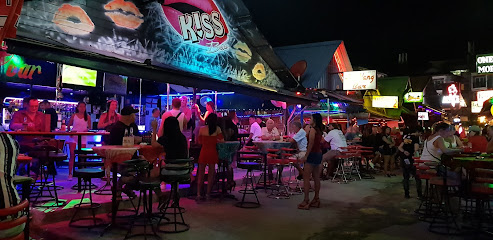
Arty Momma Rasta Bar
Experience the vibrant ambiance of Arty Momma Rasta Bar in Krabi, where good times and great cocktails await you.
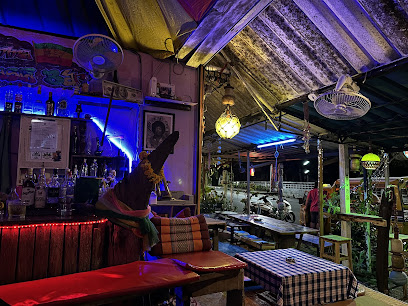
Upbeat Bar (was Loft R&B)
Upbeat Bar in Ao Nang: A lively nightlife destination with great music, delicious drinks, and an unforgettable atmosphere for tourists.
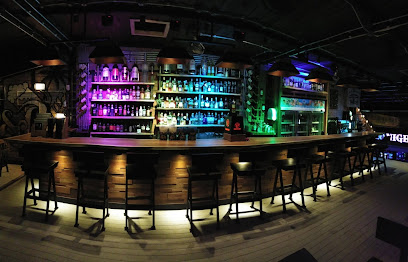
Up To You Bar
Experience the vibrant nightlife and refreshing cocktails at Up To You Bar, Ao Nang's favorite destination for relaxation and fun.
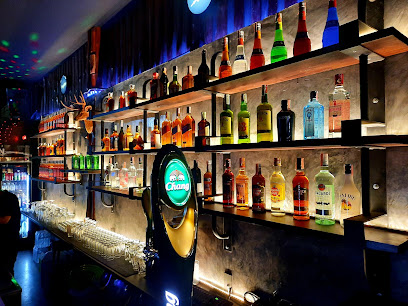
Zeus Pub Krabi
Discover the vibrant nightlife of Krabi at Zeus Pub, where great drinks and live music create an unforgettable atmosphere.
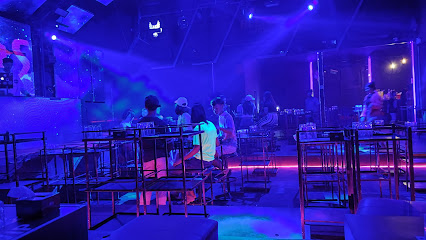
Chomtawan
Discover Chomtawan, a tropical bar and restaurant in Krabi, Thailand, offering exquisite cuisine and stunning views in a serene atmosphere.
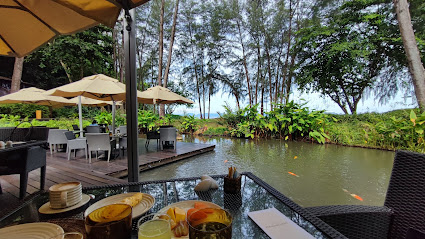
Local Phrases about Krabi Province
-
- Helloสวัสดี
[sawasdee] - Goodbyeลาก่อน
[la-kon] - Yesใช่
[chai] - Noไม่
[mai] - Please/You're welcomeโปรด/ยินดีต้อนรับ
[prode/yin dee ton rap] - Thank youขอบคุณ
[kop khun] - Excuse me/Sorryขอโทษ
[kor toht] - How are you?สบายดีไหม
[sabai dee mai] - Fine. And you?สบายดีค่ะ คุณล่ะ
[sabai dee ka kun la] - Do you speak English?คุณพูดภาษาอังกฤษได้ไหม
[kun poot paa saa ang-krit dai mai] - I don't understandฉันไม่เข้าใจ
[chan mai kao jai]
- Helloสวัสดี
-
- I'd like to see the menu, pleaseขอดูเมนูหน่อย
[kor doo menu noi] - I don't eat meatฉันไม่กินเนื้อ
[chan mai gin neu] - Cheers!ชนเหยาะ!
[chon yao] - I would like to pay, pleaseขอจ่ายเงินหน่อย
[kor jai ngoen noi]
- I'd like to see the menu, pleaseขอดูเมนูหน่อย
-
- Help!ช่วยด้วย!
[chuai duay] - Go away!ไปข้างหลัง!
[pai khang lang] - Call the Police!โทรตำรวจ!
[tor tam-ruat] - Call a doctor!โทรหมอ!
[tor mo] - I'm lostฉันหลงทาง
[chan long tang] - I'm illฉันไม่สบาย
[chan mai sabai]
- Help!ช่วยด้วย!
-
- I'd like to buy...ฉันอยากซื้อ...
[chan yak sue...] - I'm just lookingฉันแค่ดู
[chan kae doo] - How much is it?ราคาเท่าไหร่
[ra-ka thao rai] - That's too expensiveแพงเกินไป
[paeng gein pai] - Can you lower the price?คุณลดราคาได้ไหม
[kun lot ra-ka dai mai]
- I'd like to buy...ฉันอยากซื้อ...
-
- What time is it?ตอนนี้กี่โมง
[ton nee kee mong] - It's one o'clockเป็นโมงเช้า
[pen mong chao] - Half past (10)สามสิบครึ่ง
[sam sip khreung] - Morningเช้า
[chao] - Afternoonบ่าย
[bai] - Eveningเย็น
[yen] - Yesterdayเมื่อวาน
[meua wan] - Todayวันนี้
[wan nee] - Tomorrowพรุ่งนี้
[proong nee] - 1หนึ่ง
[neung] - 2สอง
[song] - 3สาม
[sam] - 4สี่
[see] - 5ห้า
[ha] - 6หก
[hok] - 7เจ็ด
[jet] - 8แปด
[baet] - 9เก้า
[gao] - 10สิบ
[sip]
- What time is it?ตอนนี้กี่โมง
-
- Where's a/the...?...อยู่ที่ไหน
[... yu tee nai] - What's the address?ที่อยู่คืออะไร
[tee yu keu a rai] - Can you show me (on the map)?ช่วยชี้ให้หน่อยได้ไหม
[chuai chee hai noi dai mai] - When's the next (bus)?รถคันถัดไปเมื่อไหร่
[rot kan tud pai meua rai] - A ticket (to ....)ตั๋ว (ไป...)
[tua (pai...)]
- Where's a/the...?...อยู่ที่ไหน
History of Krabi Province
-
Krabi Province's history can be traced back to prehistoric times. Archaeological evidence, such as stone tools and skeletal remains, indicates that humans have inhabited the area for over 30,000 years. The ancient inhabitants were likely hunter-gatherers who relied on the rich natural resources of the region for survival.
-
During the 8th to 13th centuries, Krabi was part of the Kingdom of Ligor, which is known today as Nakhon Si Thammarat. This kingdom was an important political and cultural center in the region, and Krabi benefited from its strategic location along maritime trade routes. The influence of Indian culture, religion, and art was significant during this period, as evidenced by the remains of ancient Hindu-Buddhist temples.
-
In the 13th century, the Thai people began to establish their own states in the region, leading to the gradual decline of the Kingdom of Ligor. Krabi came under the influence of the Sukhothai and later the Ayutthaya Kingdoms. These new Thai states brought with them new cultural and religious influences, further enriching the local culture.
-
Krabi's coastline and natural harbors made it a crucial hub for maritime trade between the Malay Peninsula and the Andaman Sea. By the 18th century, the town of Krabi had developed as a significant trading port. Merchants from China, India, and Europe frequented the area, bringing with them goods, ideas, and cultural practices that would blend with local traditions.
-
During the 19th century, Krabi, like much of Thailand, felt the pressures of European colonial expansion in Southeast Asia. The region managed to remain independent through skillful diplomacy. In 1872, King Chulalongkorn (Rama V) officially established Krabi as a province, as part of his administrative reforms to modernize the country and centralize power.
-
During World War II, Krabi Province was occupied by Japanese forces. The area was strategically important due to its coastal location and served as a base for Japanese naval operations. The local population endured hardships during this period, but the end of the war brought liberation and a return to normalcy.
-
Following World War II, Krabi saw significant development and modernization. The construction of infrastructure such as roads, schools, and hospitals improved the quality of life for residents. The discovery of natural gas in the Andaman Sea in the late 20th century spurred economic growth, and the province began to develop its tourism industry, capitalizing on its natural beauty and cultural heritage.
-
Krabi is home to a rich cultural heritage that includes traditional Thai music, dance, and cuisine. The province is known for its vibrant festivals, such as the Krabi Boek Fa Andaman Festival, which celebrates the opening of the Andaman Sea tourism season with parades, cultural performances, and boat races. Additionally, the Loi Krathong festival, where residents float decorated baskets on water to pay respect to the goddess of water, is a significant cultural event in the province.
Krabi Province Essentials
-
Krabi Province is well-connected and accessible by air, road, and sea. The primary gateway is Krabi International Airport (KBV), which has direct flights from major cities in Thailand and international destinations. From Bangkok, you can take a domestic flight to Krabi, which takes about 1.5 hours. Alternatively, you can travel by bus from Bangkok's Southern Bus Terminal, a journey that typically takes around 10-12 hours. Ferries are also available from Phuket, Koh Phi Phi, and Koh Lanta during the high season.
-
Krabi Province offers various transportation options for getting around. Songthaews (shared pickup trucks) and local buses operate within Krabi Town and to nearby beaches. Tuk-tuks and motorbike taxis are widely available for shorter distances. Renting a motorbike or car is a popular choice for exploring the area at your own pace. Long-tail boats are essential for reaching islands and remote beaches. Always negotiate and agree on a fare before starting your journey.
-
The official currency in Thailand is the Thai Baht (THB). Credit and debit cards are accepted in most hotels, restaurants, and larger shops, but it's advisable to carry cash for smaller establishments and local markets. ATMs are widely available throughout Krabi Province, including at the airport and in major tourist areas. Currency exchange services are also available at the airport, in banks, and at exchange booths in popular tourist spots.
-
Krabi Province is generally safe for tourists, but it's important to exercise standard precautions. Avoid isolated areas at night and keep your belongings secure in crowded places. Be cautious of scams, especially involving taxi fares and tours. Ao Nang and Railay Beach are popular tourist areas and generally safe, but always stay aware of your surroundings. Be mindful of water safety, especially during monsoon season when currents can be strong.
-
In case of emergency, dial 191 for police assistance, 199 for fire emergencies, and 1669 for medical emergencies. Krabi Hospital is the main medical facility in the province, and several clinics are available in tourist areas like Ao Nang. It's recommended to have travel insurance that covers medical emergencies. Pharmacies are widely available for minor health issues and over-the-counter medications.
-
Fashion: Do wear light, breathable clothing suitable for the tropical climate, but carry a sarong or scarf to cover up when visiting temples. Avoid wearing revealing clothing in public places. Religion: Do remove your shoes and cover your shoulders and knees when entering temples. Show respect by being quiet and not touching religious artifacts. Public Transport: Do negotiate and agree on a fare before boarding a tuk-tuk or taxi. Avoid eating or drinking on public transport. Greetings: Do greet others with a 'wai,' a slight bow with palms pressed together. Avoid touching someone's head or pointing your feet at people or religious objects. Eating & Drinking: Do try local Thai dishes and street food. Always use your right hand when eating or passing items. Don't refuse food or drink offered by locals, as it is considered impolite.
-
To experience Krabi Province like a local, visit the morning markets in Krabi Town for fresh produce and local delicacies. Engage with locals and learn a few basic Thai phrases to enhance your interactions. Take part in eco-tours and community-based tourism activities to support local initiatives. Explore less-visited beaches like Klong Muang for a more tranquil experience. Don't miss the night markets for unique souvenirs and delicious street food.
Trending Landmarks in Krabi Province
Nearby Cities to Krabi Province
-
Things To Do in Trang
-
Things To Do in Phuket
-
Things To Do in Nakhon Si Thammarat
-
Things To Do in Surat Thani
-
Things To Do in Koh Samui
-
Things To Do in Satun
-
Things To Do in Langkawi
-
Things To Do in Ranong
-
Things To Do in Chumphon
-
Things To Do in George Town
-
Things To Do in Penang
-
Things To Do in Kota Bharu
-
Things To Do in Ipoh
-
Things To Do in Cameron Highlands
-
Things To Do in Hua Hin












